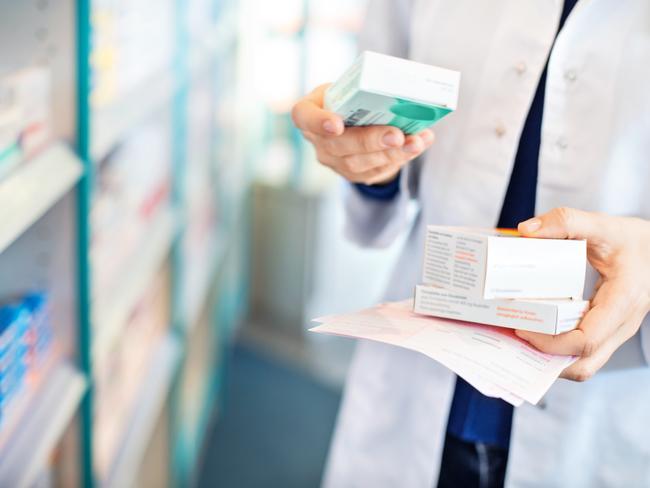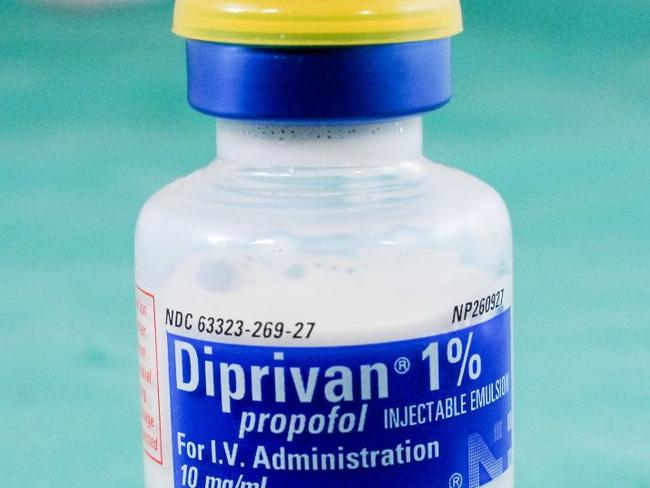Aussie hospitals can’t source medicines needed to ventilate COVID-19 patients
Australian hospitals have warned of the “biggest threat” from COVID-19 after falling short of key drugs needed for putting coronavirus patients on ventilators.
World
Don't miss out on the headlines from World. Followed categories will be added to My News.
Australian hospitals have run out of key drugs they need to put coronavirus patients on ventilators and are warning “the lack of medicines not the lack of ventilators is the biggest threat from COVID-19”.
Hospital pharmacists only have enough of the sedative propofol and muscle relaxant cisatracrium to treat patients in less than half the hospital beds they have been asked to set up for COVID-19, a Society of Hospital Pharmacists Australia (SHPA) survey has found.
“Hospitals have reported not having their orders filled for several weeks, with 80 per cent of orders only supplied in part, regardless of hospital size, location or patient cohort, highlighting a supply chain in distress,” SHPA CEO Kristin Michaels said.

The 66 hospitals that responded to the survey only had enough medications to treat 774 critical COVID-19 patients who needed ventilation.
Eighteen of the hospitals did not have enough propofol to manage one single day of ventilated patients at their planned maximum capacity, the survey found.
Sixteen hospitals reported insufficient propofol to manage one single day of ventilated patients at half their planned maximum capacity.
Hospitals in the UK are also experiencing a shortage of the same medicines and its government has slapped an export ban on the drugs to keep what little supply there is in the country.
However, News Corp has been told the problem is the result of hospitals trying to stockpile up to 12 months’ worth of medicines in a way that could keep drugs from hospitals in COVID-19 hot spots that need them urgently.

Some large public hospitals have put in medicine orders 600 per cent higher than normal.
Medicines Australia and the Generic and Biosimilar Medicines Association told News Corp there was enough supply of the medicines in the country to meet the current demands of intensive care beds “many times over”.
However, the medicines are being kept in warehouses run by pharmaceutical companies and medicines wholesalers so they can be sent rapidly to hospitals that need them rather than sitting on shelves in hospitals that don’t need them.
News Corp is aware Victoria’s Department of Health and Human Services is attempting to bulk purchase a reserve of medicines equivalent to six to 12-months’ of historical supply to cope with COVID-19.
Health Minister Greg Hunt has raised the stockpiling issue with state health ministers and asked them to stop.
The Society of Hospital Pharmacists Australia surveyed 66 hospitals around Australia on April 17 and found many were reporting critical shortages of key drugs.
Ms Michaels said the problems was Australia-wide and occurring in big city hospitals as well a smaller regional hospitals which had never had to stock for intensive care beds in the past.
The real issue was that a “shroud of secrecy” hangs over the extent of medicine supply in Australia and unless it is improved we will be unable to share critical supplies from well stocked hospitals with few COVID-19 cases to those hospitals with a serious COVID-19 outbreak, Ms Michaels said.
Ms Michaels says the figures question the ability of Australia’s healthcare system to treat a potential COVID-19 surge and the timing of a return to elective surgeries.
“Stocks of these drugs are a tightly guarded secret nationwide and hospitals are poorly informed as to what stock they should expect to receive in coming weeks and months,” she said.
News Corp revealed on Sunday that almost 600 commonly used medicines are in short supply with 75 listed as being in critical shortage.
Those in short supply include Ventolin, chemotherapies for common cancers, breast cancer medicine tamoxifen, diabetes medicine agripressin, eight brands of medicine for underactive thyroid, blood pressure treatments, antidepressants, medicines used for epidurals in childbirth, epipens for anaphylaxis, multiple antibiotics even a rabies vaccine.
The medicines industry says while some particular brands or dosages of medicines are in short supply it did not mean patients could not find other brands or doses to treat their condition.
The shortages, which existed before the coronavirus emerged, have grown by 33 per cent in the last month alone.
Doctors are being blamed for fuelling the current crisis by bending the rules to write special “Regulation 49” prescriptions that allowed patients to stockpile six months or more worth of medicine.
This added to already-depleted stocks, brought about by a reduction in factory output in China and India and freight delays.
